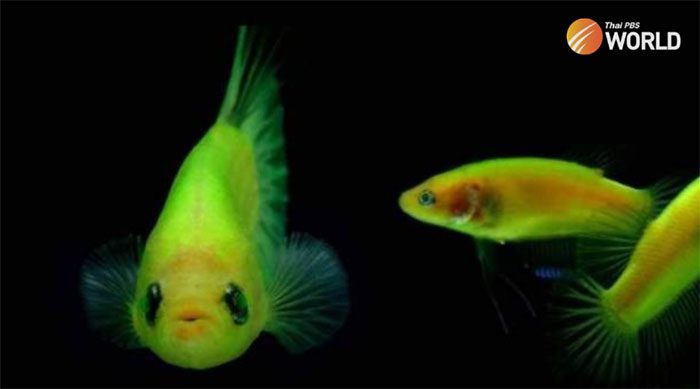The Fisheries Department of Thailand, under the Ministry of Agriculture and Cooperatives, has mandated that all commercial tropical fish farms must submit genetically modified organisms (GMO) fish, including GloFish, for destruction by November 30.

Genetically modified fish (GMO) have been banned in many countries due to their serious threat to native species – (Photo credit: THAI PBS WORLD).
This action aims to prevent the possibility of GMO fish being released into natural water sources, which could threaten local wildlife.
Ms. Arunee Rodloy, a fish expert at the Fisheries Department of Thailand, stated that GMO fish have been banned in several countries because they are considered a serious threat to native species.
These countries may boycott tropical fish from Thailand – such as Siamese fighting fish, which are popular in many places, if they believe Thai fish farms are breeding GMO fish. Ms. Arunee added that the Fisheries Department of Thailand has also banned the import of 13 aggressive fish species that are deemed a threat to local species.
According to Ms. Arunee, after the deadline of November 30, individuals found to be breeding GMO fish may face fines of up to 1 million baht (over 30,000 USD) or imprisonment for up to 1 year. Penalties could increase to 2 years in prison or a fine of 2 million baht depending on the severity of the violation.
GloFish is a GMO fish that has gained popularity among tropical fish enthusiasts due to its vibrant colors and ability to glow in the dark. Although no GMO fish have been detected in natural water sources, expert Arunee noted that the Fisheries Department of Thailand remains concerned that these fish could accidentally be released, breed, and threaten local species.
According to Thailand’s export figures, approximately 5.94 million tropical fish, valued at around 44.9 million baht, were exported by air through Suvarnabhumi International Airport last year.


















































